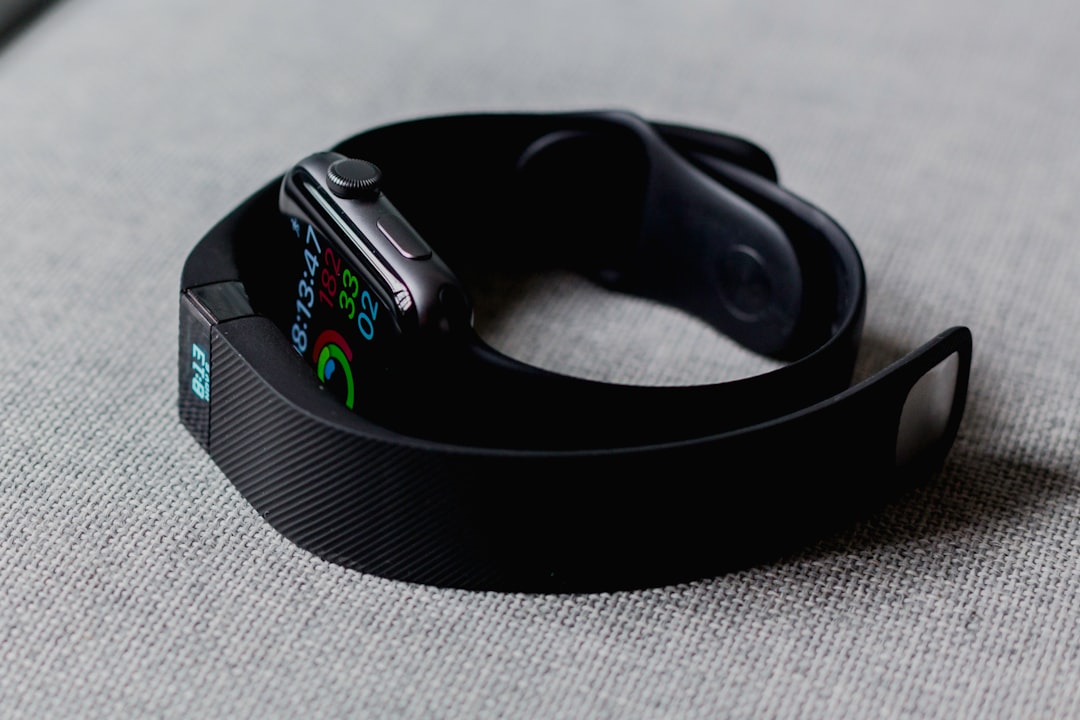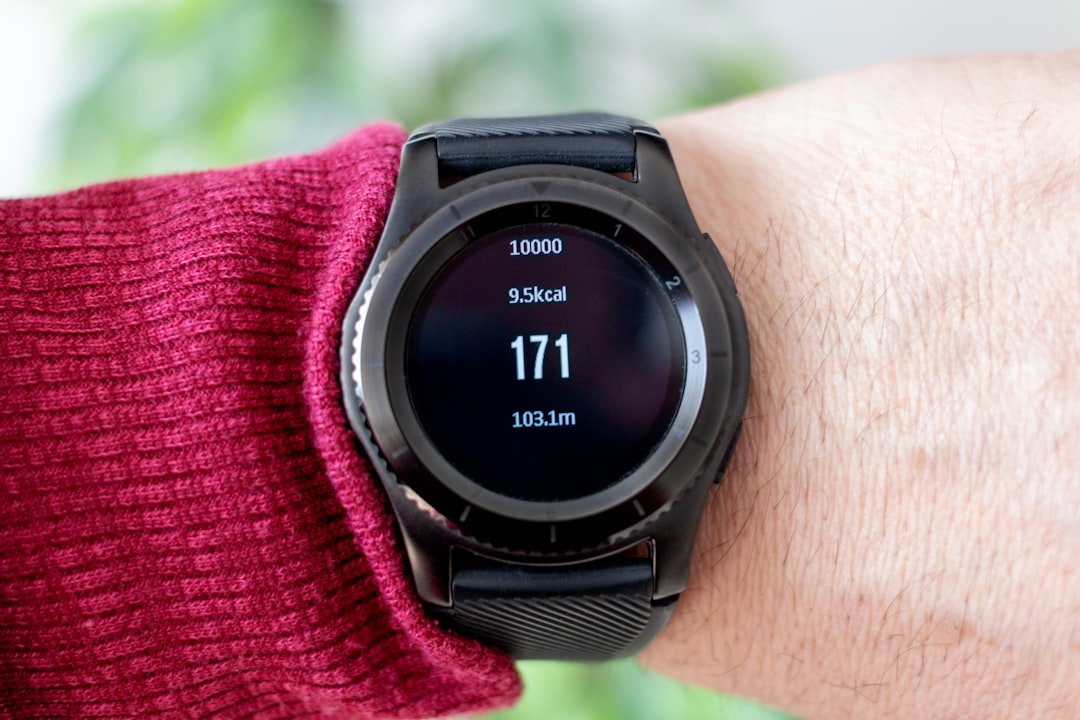We created this ultimate walking guide because, here at Smiley's Points, we want to help you become the best you can be. We truly want you to succeed with Healthi formerly iTrackbites and we are sharing everything that has helped us to get to where we are on this journey. Really want to amp up your weight loss with exercise? This is how you start!

How to walk for weight loss
I have tried to make this post as informative as I can with the knowledge that I have. If you have any other information that I may have missed, please leave me arwe comment so I can include it and help others.

Walking Is The Perfect Low Impact Exercise
If you haven’t exercised in a while, or are looking for something easy you can do every single day give walking a try. Walking is the perfect low impact way to exercise. It’s easy to do, you don’t need any special equipment, and you can start at the fitness level you’re at.
If you’re not in the best of shape, start by going for a 10 or 15-minute walk around the neighborhood and work your way up from there. The idea is to get moving and to keep going. If 10-15 minutes is too long, start out with 5 minutes and work your way up.
If you’re already in great shape, walking can still provide an effective workout. Walk fast and incorporate some hills and even stairs. Adding moderate exercise to the Weight Watchers Freestyle plan earns you Fit Points.
If you are following any diet plan or have changed the way you eat for the purpose of weight loss, incorporating walking into your daily activities will increase how fast you lose weight. Walking and exercise will also help you to feel better, give you more energy, and can increase your overall health.
What are Fit Points?

Fit Points are points that are added to your daily allowance of points when you exercise. If you have a Fit Bit you can connect it to the Weight Watchers app and your points will be automatically added. Fit Points, like Weeklies, should be used sparingly in most cases. It may take some trial and error to figure out how you best can use these points. I used my weeklies to help me get through a plateau.
I needed to increase my calorie intake so my body would start burning fat again. I was at the plateau because my caloric intake matched my output so my body had reached a state of equilibrium. All that means is I needed more fuel so my body would continue to burn the excess fat stored in my body. This was the case for me; you may have to try different things when you hit a plateau to get your body going again. Asking questions in Facebook groups like Weight Watchers Low Point Recipes and Weight Watchers Freestyle and Success can help you find solutions from others who have been through plateaus.
Take a Step Back

Let’s not get ahead of ourselves here. If you’re like most of us, chances are you haven’t exercised much since you got out of college or were college-aged, and you may need to start small. Maybe your doctor suggested that you move around more, or maybe you just want to be proactive about your health and well-being. Regardless of why you want to start, walking is the perfect way to get in the habit of moving and exercising again.
Get Good Shoes

Find a pair of comfortable, supportive shoes, put them on, and go for a stroll through your neighborhood. You could also find a local park with a nice path you can walk on. If the weather doesn’t permit walking outside, here are 8 ways to get your steps in walking inside. My goal is around 10,000 steps a day – that is equal to about 5 miles.
If you are going to be walking that much, you are going to want to have a great pair of shoes. Shoes can make a big difference in how you feel after you are done walking. Make sure to do some research and find the right shoes for the activity you're doing. Walking, running, or hiking all are different in design. Make sure you get the best shoes you can afford.
Walking Inside

You can even walk in place at home in front of your TV. Here’s a simple little idea to get you moving more. As you're sitting on the couch at night watching TV, get up during commercial breaks and march in place until your favorite TV show comes back on.
If you’re using a service like Netflix, make yourself walk in place for 10 minutes in between episodes. Or, turn on the TV and challenge yourself to march in place during the entire show.
Time will fly while you’re having fun watching TV and moving. Marching in place is just one of the ways you can get moving indoors.
Walking Outside

Speaking of having fun, going for a walk outside can be a lot of fun, too. Mix up your route and walk in different areas of town, or visit different parks. Invite a friend to come along with you to walk. It’s always nice to have someone to talk to and having a walking buddy keeps you accountable.
Last but not least, grab your phone and listen to music or audiobooks as you walk to make the time go by faster. Walking Can Be Fun and exhilarating. Don't let the weather or your excuses stop you from getting up and moving. After a week or so, you will wonder why you didn't start sooner.
The main thing is that you get out there, move around, and get some exercise in a way that’s gentle on your joints, your heart, and the rest of your body and that’s what walking will do for you. Just give it a try and see if you don’t start to feel better, happier, and stronger after a few weeks of regular walks.
The Health Benefits Of Walking
There are a lot of good reasons to go for a walk. It’s fun, it’s relaxing, and most importantly, it’s good for your health. What exactly are the health benefits of walking? There are so many benefits of walking, here are a few:
Walking Gets You Outside In The Fresh Air and Sunshine

No matter how fast or slow you walk, walking gets you outside and in the fresh air. This alone will make you feel better as your body absorbs the oxygen and sunshine. Both are important for your health and overall well-being.
You will find the air quality outside, especially if you go for a walk on the beach or in a park, will be much better than the air inside your house. Of course, this depends on where you live, but getting outside when it is nice out and the pollution index is lower will have you feeling better in no time at all.
Remember how it felt when Spring finally came and you got to go outside and play? Do you remember Spring Break and the beach and fun in the sun? Let's capture that feeling again. Go to a park or local zoo and have a blast. Taking your mind off of life's everyday hustle and bustle will help your mental health while walking helps your physical health. The sunshine outside will help your body produce all the Vitamin D it needs, which is an added bonus.
Walking Can Help You Get To And Maintain A Healthy Weight
Walking particularly at a quick pace and doing it regularly can help you get to – and then maintain – a healthy weight. Yes, you still need to watch what you eat and aim for a healthy diet, but that is what Weight Watchers is for! Walking can be another tool to help you drop those extra pounds.
Weight Watchers Freestyle program gives you Fit Points when you are working out because when you are exercising you are burning calories and you may need to eat more to continue losing weight.
Being Overweight and Walking

The nice thing about walking when you’re overweight is that you burn a lot of calories, even on short and slow walks, simply because you’re carrying more weight around with you. As you start to lose weight, your overall strength and endurance increases, allowing you to walk longer, further, and faster.
Set goals and as you reach them, set faster or longer goals. Your ultimate goal is a better, leaner, toner you, a you who feels good in the morning and who is ready for more in the evening. A you who loves how they look in the mirror, and how they feel after walking a few flights of stairs.
Walking will help you to feel younger and have more endurance. Some goals you can set may be to walk to the mailbox and back in 5 minutes, depending on how far the mailbox is of course. Another goal is to be able to play with the grandkids a little longer, play catch, or just chase the little ones around.
We all have goals we can set to motivate us to get up and walk. Write down your goals and put them up so you see them every day. Writing down my goals and putting them in a prominent place has helped me to achieve them more than any other resource. Simply seeing my goals reminds me every time I go into the kitchen or brush my teeth at night, it has helped me to stay focused on my end goal which is optimal health.
Walking Improves Your Sense Of Balance And Coordination

As you walk, particularly when walking over rougher terrain, you’re also working on your sense of balance and coordination. Just getting in the habit of going for a daily walk will help. You can work even more on your sense of balance by moving your head around. Turn your head to the right and left as you walk for a count of 30. Then move your head up and down for a count of 30. If you do these simple exercises once or twice as you walk each day, you'll get more benefits from your daily walks.
If you haven't moved in awhile, try doing these simple head movements to stretch and loosen up those neck muscles before you go on your walk. While you are walking, perform the simple head movements, slowly at first. Keep in mind your limitations but always push yourself a bit more than yesterday so you continue making progress.
Walking Strengthens Your Bones and Muscles
Even though walking is a low impact form of exercise, it helps to strengthen and tone your body. If you’re just starting out, it is all you need to start to get into better shape. You can add ankle weights and or wrist weights to start with weight training. As you get more fit, consider adding weight lifting exercises in addition to your daily walks to continue to get stronger and help develop strong muscles and bones.
For even better results, try adding weights to your exercise program.
Walking Will Boost Your Mood and Can Fight Depression
Walking releases endorphins that will help lift your mood and can even reduce depression. Give it a try! The next time you’re feeling tired or are in a bad mood, lace up your sneakers and go for a brisk walk. It works like a charm.
Depression is becoming more and more prevalent in our society. Walking is an excellent way to begin to combat it. Get outside into the sunlight and “take a hike”. When I walk, I think. I believe I do my best thinking while I am walking.
Walking helps to clear my mind of unnecessary clutter so when I get back I am thinking more clearly. I use this technique when I feel like I am stuck or when I feel like my brain is in a fog. I go for a walk and just think, it really does clear things up. Obviously walking isn't going to “cure” depression, but it can definitely help improve your mood.
How To Get In The Habit Of Walking More
We were designed to walk for miles and miles to hunt and gather our food. Yet, in modern society, we spend most of our time sitting down. That is not good for our bodies leading to a plethora of health problems. This is may be one of the most important reasons to make an effort to move around and go for a walk each day. Of course, that’s easier said than done. Many of us sit for work, we eat sitting down, and to be honest, all we want to do when we come home from work is plop down on the couch for a Netflix marathon until bedtime.
Make walking a habit and you will notice your steps steadily increasing. Park in the last parking spot, walk up and down every aisle of the store (if you can resist impulse buys… my wife can't LOL), walk around the house once every hour. Sneak in a few steps here and there until walking more is second nature. Once you get in the habit of walking, you may want to add in extra exercises. Increasing your exercise will make weight loss much easier, and you'll get healthier while you're at it.
Make Walking A Habit

In other words, getting and staying in the habit of going for a walk each day can be a bit of a challenge. – but that’s exactly what we need to do. We need to get in the habit of going for that walk just like we’re in the habit of brushing our teeth twice a day or taking out the trash on Tuesdays.
Once it’s a well-ingrained habit, it won’t be as much of a challenge to make sure we go for a walk each day. It all starts with that first step. Not the step going to the living room to sit down, but that first step outside or the first time you walk a loop inside. That step is the beginning of you taking charge of your health and seriously making a concerted effort to change the norm. You can do it! 🙂
A great place to start is to find a walking route you enjoy. It helps to make it as easy as possible. Your favorite walk may offer beautiful vistas, but if it’s a 30-minute drive there and back, you’ll be less likely to do it every single day. Instead, save that walk for the weekends and come up with something a bit more convenient and pleasant for your everyday walking routine.
If you can, find a route in your own neighborhood so you can leave right from your front door. Just lace up your shoes and start walking. Don't forget your fitness tracker or Fit Bit so you can make sure those steps count.
Taking the same route every day helps form that habit. It’s also encouraging to notice that you can walk the same loop faster or with less effort over time. It proves that you're making a difference and are getting stronger.
Listen To Music

Listening to your favorite music, podcast, or audiobooks is a great way to make walking more enjoyable. It will make the time go by faster and give you something else to look forward to. You can even use your favorite media as a way to bribe yourself to go for your daily walk.
Let’s say you have a couple of podcasts you enjoy. Save them for your walks and only let yourself listen to them while you’re walking. It’s a great incentive to get out there even on days when you’re not feeling it.
Walk With Friends

Consider walking with other people. Find a walking group in your area, or talk a friend or neighbor into becoming your walking buddy. Use Meetup or local Facebook groups to find walking friends. Not only is it more fun to walk when you have someone to talk to, but it also has some built-in accountability. It’s harder to skip a walking workout when you know that other people are waiting for you and relying on you to join them.
Give these tips a try and see if they help you make walking a daily habit and an integral part of your health, your fitness, and your life.
Use a FitBit or Pedometer

Setting aside some time to go for a 45-minute walk isn’t always easy. We all live busy lives and between family and work, fitting in a workout doesn't always possible.
What if I told you that you didn’t have to dedicate a set block of time for your walking workouts? What if you could get the same health benefits by working in a little more activity here and there throughout your day? And what if there was a fun little gadget that helped you keep track of it and motivated you to move more?
There is and it’s called a pedometer. You can pick up an inexpensive model at your local superstore or order it from Amazon. Or you can go with something a little fancier like a FitBit for example. But before you head out to spend any money, check your smartphone. Many models have a built-in pedometer. All you need to do is download a free app and you’re good to go.
Wrist-worn pedometers are all the rage and have some nice features. Your phone may not be as accurate as a wrist-worn pedometer, but it is a low-cost way to track your steps until you can get one. You may find that you do not need pedometer or FitBit once you get moving. Setting a daily goal and tracking your steps is a great way to get and stay motivated.
The pedometer will track how many steps you take on any given day. It will also track how many minutes you’ve spent being active and how many miles you’ve walked. In other words, it keeps track of how much exercise you get during your day. And the good news is that it doesn’t matter if you head out after work for a 45-minute walk, or if you work out in little spurts here and there throughout the day.
Maybe you start your day by parking a little further away from the office and walking a couple of hundred extra steps. Then you take a quick stroll during your lunch break. You wrap up your day by walking around the park while your kids play. And just like that, you’ve gotten your exercise in without having to block out any additional time. 10,000 steps is a great beginning goal that isn't too easy but isn't impossible for most of us.

I hope this article convinces you that heading out for a walk each day is a great idea and that it motivates you to stick to your walking schedule until you start to see results.
Give it a try. Put on a pedometer, or start tracking with that phone you’re always carrying around anyway and see how much you’re walking around any given day. From there, try to get a little more active as time goes by until you hit your stepping goal.
Read this article if you need help syncing your FitBit to your iTrackBites account!
For most of us 10,000 steps per day is a good goal, but if you’re feeling more ambitious than that, go for it. Can't handle 10,000? Start with a goal of 2,000 or 5,000. After 3 months of actually hitting the 10k a day I bumped my goal up to 15k. It was a bit tougher, especially because I work from home, but I am working towards getting that goal every day 🙂 What is your step goal?
Keeping track of your steps is very motivating. Looking at your pedometer and realizing you’re 2,000 steps away from your daily goal may be just the motivation you need to head out for that after-dinner stroll. 🙂
Walking Can Help You Lower Your Blood Pressure And Strengthen Your Heart

Walking has all sorts of health benefits among them the ability to help lower your blood pressure and strengthen your heart. Many people at risk for stroke and heart disease are overweight, unhealthy and have a hard time exercising. Thankfully walking is an easy, low-impact workout that almost anyone can do.
If you can go for a 30-minute walk, start there. Pick up the pace, walk briskly and after a week or two, try to go for 45-minute walks. Or break up your walking workout into 3 shorter sessions interspersed throughout your day. Breaking up your walking into smaller time frames throughout the day may help you to get to your goal every day and not wear yourself out. You will see improvement quickly.
Walking With Health Conditions

If you have any health conditions or you’re suffering from high blood pressure and are at risk for heart disease, discuss your walking plans with your doctor. The two of you can come up with a plan that’s appropriate and safe for you. Don't let anything stop you from becoming the best you can be! With a doctor or other health advisors help you can start a walking program that will benefit you and get you in better shape. It may take time, but you will get there! Never give up. Walking can help to lower your blood pressure. According to WebMD, if you have high blood pressure or are extremely overweight, walking may hold the key to improved heart health.
Regular exercise will strengthen your heart. Remember your heart is a muscle and going for a brisk walk works out more than your leg muscles. As you work out your heart, it gets stronger and better at pumping blood through your body. And as you strengthen your muscles and your body overall, you are likely losing body fat. That’s good news for your blood pressure long term. All it takes is heading out there for a short little walk each day. As you get stronger, those walks will get longer and you may even give swimming or riding your bike a try.

A healthy diet, regular exercise, and losing weight are some of the most effective ways to reduce hypertension. Walking also helps you destress and it’s no wonder that walking regularly has such beneficial effects on your health. Ready to get started? Put on your shoes and go for that first walk.




1 thought on “Ultimate Walking Guide for Weight Loss”